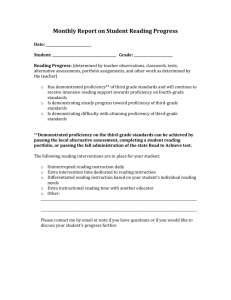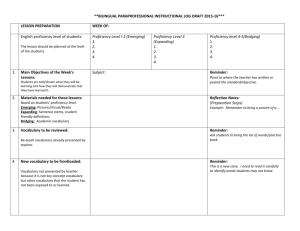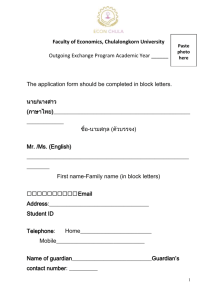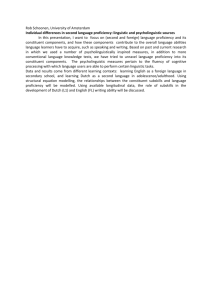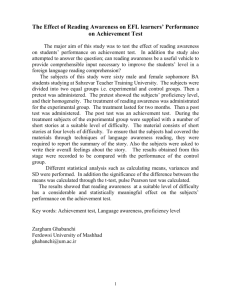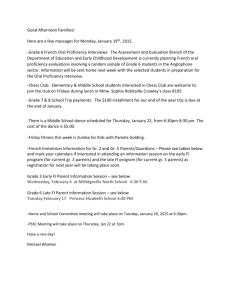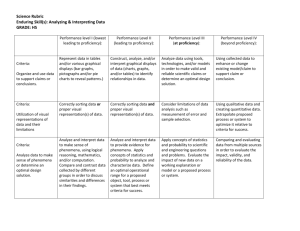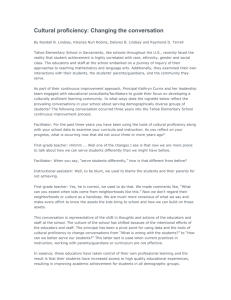Cultural Proficiency Framework
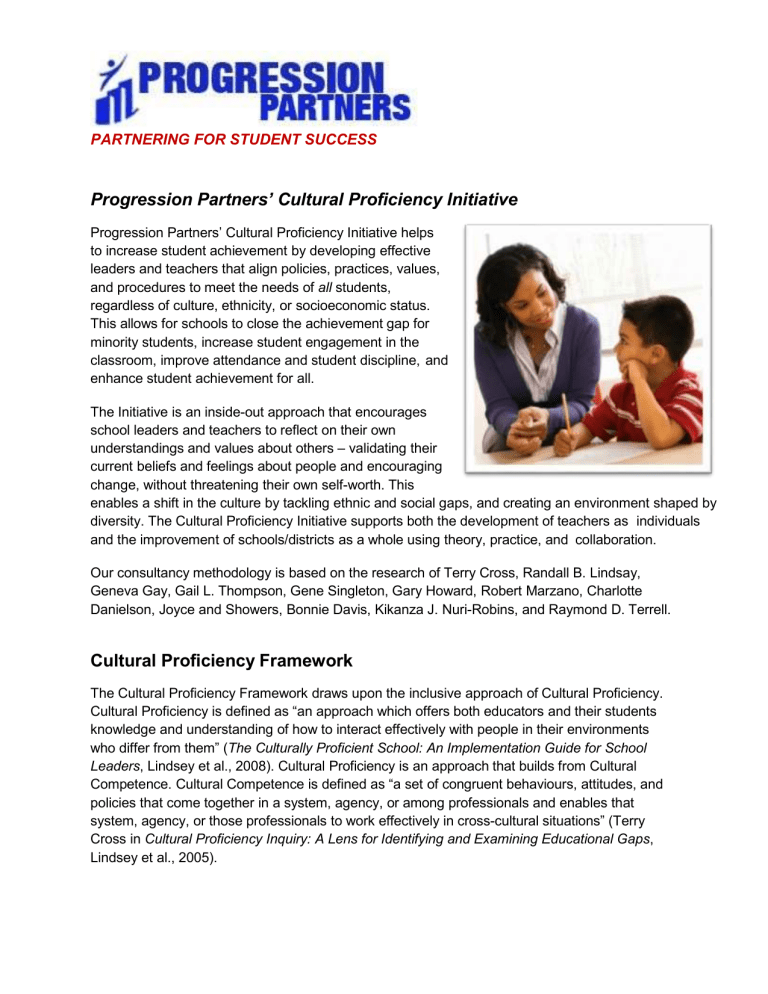
PARTNERING FOR STUDENT SUCCESS
Progression Partners’ Cultural Proficiency Initiative
Progression Partners’ Cultural Proficiency Initiative helps to increase student achievement by developing effective leaders and teachers that align policies, practices, values, and procedures to meet the needs of all students, regardless of culture, ethnicity, or socioeconomic status.
This allows for schools to close the achievement gap for minority students, increase student engagement in the classroom, improve attendance and student discipline, and enhance student achievement for all.
The Initiative is an inside-out approach that encourages school leaders and teachers to reflect on their own understandings and values about others – validating their current beliefs and feelings about people and encouraging change, without threatening their own self-worth. This enables a shift in the culture by tackling ethnic and social gaps, and creating an environment shaped by diversity. The Cultural Proficiency Initiative supports both the development of teachers as individuals and the improvement of schools/districts as a whole using theory, practice, and collaboration.
Our consultancy methodology is based on the research of Terry Cross, Randall B. Lindsay,
Geneva Gay, Gail L. Thompson, Gene Singleton, Gary Howard, Robert Marzano, Charlotte
Danielson, Joyce and Showers, Bonnie Davis, Kikanza J. Nuri-Robins, and Raymond D. Terrell.
Cultural Proficiency Framework
The Cultural Proficiency Framework draws upon the inclusive approach of Cultural Proficiency.
Cultural Proficiency is defined as “an approach which offers both educators and their students knowledge and understanding of how to interact effectively with people in their environments who differ from them” ( The Culturally Proficient School: An Implementation Guide for School
Leaders , Lindsey et al., 2008). Cultural Proficiency is an approach that builds from Cultural
Competence. Cultural Competence is defined as “a set of congruent behaviours, attitudes, and policies that come together in a system, agency, or among professionals and enables that system, agency, or those professionals to work effectively in cross-cultural situations” (Terry
Cross in Cultural Proficiency Inquiry: A Lens for Identifying and Examining Educational Gaps ,
Lindsey et al., 2005).
Shifting the Climate
Shifting the climate of the district/school to address culture openly can be a challenging task. In our collaboratve effort, Progression
Partners, Inc., uses a strategic design model as a starting point for Cultural Proficiency district/school partnerships.
Develop an awareness of biases and the potential for discrimination in all people.
Develop an awareness of our own attitudes, values, and behaviors toward different groups.
Collect data on school culture through observations, document analysis, and review of existing school data.
Understand the roles of formal and informal leadership in promoting cultural proficiency
Explore culturally appropriate approaches to teaching, learning, and community outreach
Design an action plan to improve cultural proficiency in their school or organization.
We acquire a common language through the use of the Cultural Proficient Continuum displayed below. Effective cross-cultural relationships aren’t dependent on the educators knowing everything about the cultural practices of all their students or colleagues. However, culturally proficient educators acknowledge their ongoing need to learn, and keep open lines of communication with students and families.
Closing the Achievement Gaps
American classrooms are becoming increasingly diverse. As former NEA President Dennis Van
Roekel has noted, “Educators with the skills, knowledge, and attitudes to value the diversity among students will contribute to an educational system designed to serve all students well.”
Cultural Proficiency is a key factor in enabling educators to be effective with students from cultures other than their own.
Cultural Proficiency is having an awareness of one’s own cultural identity and views about difference, and the ability to learn and build on the varying cultural and community norms of students and their families. It is the ability to understand the within-group differences that make each student unique, while celebrating the between-group variations that make our country a tapestry. This understanding informs and expands teaching practices in the culturally proficient educator’s classroom
.
Learn more about Progression Partners, Inc.
Contact your Progression Partners Representative.
Give us a call at (316) 990-5062
Summary
Progression Partners recognizes how student outcomes can be improved by incorporating cultural and ethnic contributions in curriculum and diversifying pedagogical practices. We see cultural proficiency as both a moral and ethical responsibility to create a welcoming environment in which students can succeed. Eductors who can challenge and motivate diverse student populations can dramatically improve our educational system and student outcomes.
To learn more about Progression Partners, Inc.
Please contact a representative today!
Natalie McGee
316.990.5062
